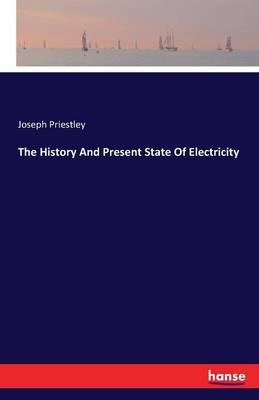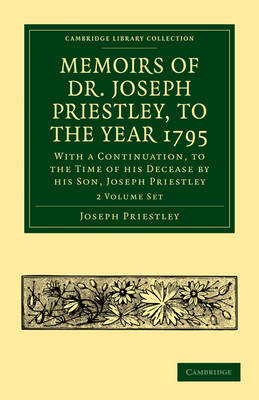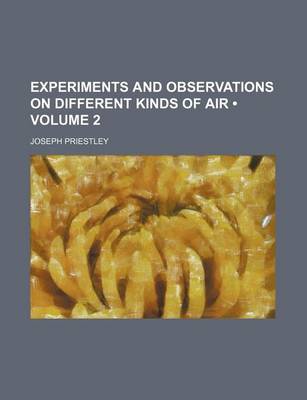Cambridge Library Collection - Physical Sciences
4 primary works • 8 total works
Volume 1
Memoirs of Dr. Joseph Priestley: Volume 1
by Joseph Priestley and Thomas Cooper
Volume 1
Experiments and Observations on Different Kinds of Air: Volume 1
by Joseph Priestley
Volume 2
Memoirs of Dr. Joseph Priestley: Volume 2
by Joseph Priestley and Thomas Cooper
Volume 2
Experiments and Observations on Different Kinds of Air: Volume 3
by Joseph Priestley
Memoirs of Dr. Joseph Priestley 2 Volume Set
by Joseph Priestley and Thomas Cooper
Experiments and Observations on Different Kinds of Air (Volume 2)
by Joseph Priestley



